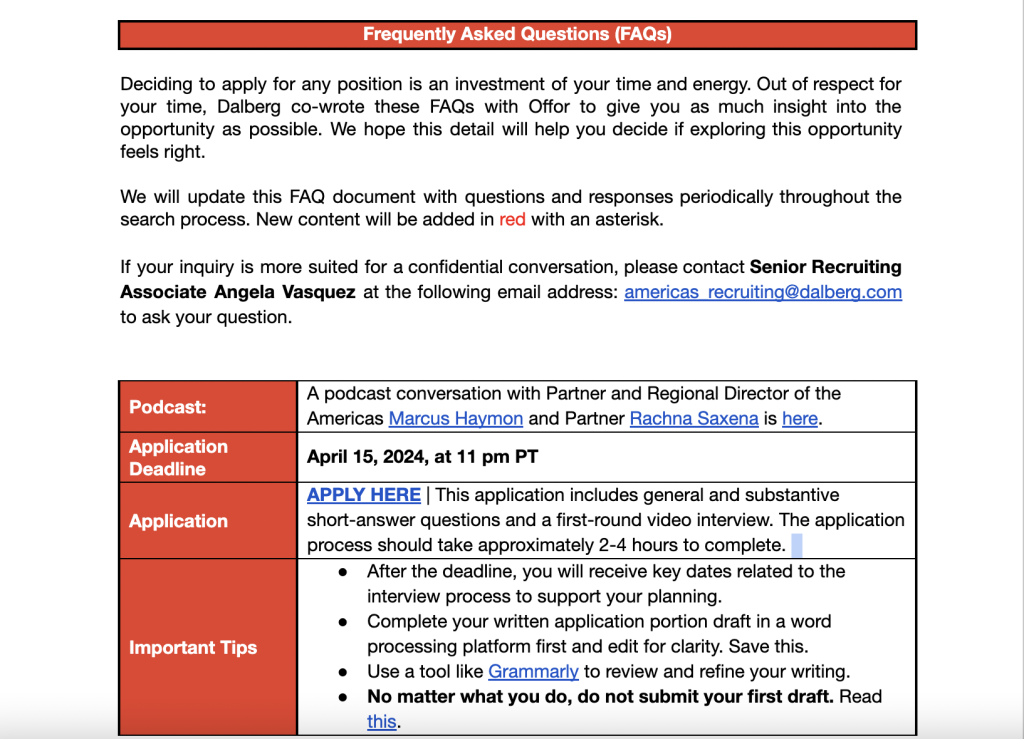
Acing the interview, tailoring your resume, and researching the company – these are all essential steps in landing a great job offer. But as recent graduates step into their first professional roles, they quickly realize there’s a whole other side to the equation: unspoken rules. These unwritten expectations and behaviors contribute to professional development but aren’t explicitly stated in a handbook or during orientation, leaving new hires navigating a bit of a mystery.
This lack of transparency around unspoken rules creates a gap between what companies are looking for and what recent graduates expect. A recent study by CareerBuilder found a significant disconnect between how employers and job seekers perceive the hiring process. A whopping 76% of employers surveyed believe they clearly communicate job expectations. However, only 47% of job seekers agree.
This gap can be particularly challenging for first-generation students. Imagine two recent graduates with similar qualifications entering the job market. One graduate might have access to valuable insider knowledge from family members already established in a particular industry. This knowledge could include crucial information about application timelines, interview expectations, or even unspoken dress codes. The other graduate, lacking such family connections, might be navigating the professional world completely blind. This lack of access to informal guidance can put first-generation students or even those who don’t have any family in the industry at a significant disadvantage when competing for jobs, even if they possess the skills and qualifications for the role. Moreover, it can lead to confusion and anxiety for new hires, ultimately resulting in decreased productivity, disengagement, and high turnover – all of which are costly for companies due to recruitment and training expenses.
Fortunately, transparency around unwritten rules can level the playing field. By shedding light on these expectations, companies can ensure everyone enters the application process with a clear understanding of what’s expected, fostering a more inclusive environment and preventing talented individuals from being overlooked.
So, how can companies embrace transparency? Forget laundry lists of unwritten rules – they’re more confusing than helpful. Instead, focus on explaining how things actually work within your company culture.
For example, is fostering a collaborative environment important to your company? Here’s how you could communicate that:
Collaboration is key, and information is shared openly.
“We believe strong teams achieve more than individuals. We hold regular brainstorming sessions and encourage team members to keep each other informed about their projects.”
Or, does your company embrace innovation and calculated risks? Here’s how you could say that:
We take calculated risks and learn from mistakes.
“Innovation is at the heart of our success, and that sometimes means venturing outside our comfort zone. If you’re uncomfortable with ambiguity and prefer a more structured environment, our company might not be ideal for you.”
This approach, like the one used by Offor.co, sheds light on the unwritten expectations that truly matter. By giving candidates a glimpse into professional development opportunities, project ownership, and future contributions within the company, you empower them to make informed decisions about their career path.


Boston Consulting Group (BCG) takes another approach to transparency by offering a unique program for aspiring consultants. They provide a job simulation module to upskill and strengthen candidate’s resumes before applying for a job at the company. The module showcases real work samples with answers from BCG leaders. This allows applicants to see firsthand how top performers tackle challenges and approach tasks, giving them valuable insights into BCG’s expectations and work style.
By shedding light on unwritten rules, companies can transform the experience for new hires, especially those from non-traditional/diverse backgrounds. When new hires understand the company’s rhythm, they can integrate seamlessly and become productive faster, translating to a quicker return on investment for your training efforts.
Explaining unwritten expectations is a great start, but transparency is an ongoing process. Here are a few additional ways companies can create a truly transparent environment:
- Organize regular sessions where new hires can ask questions about company culture, expectations, and unspoken rules. This allows them to address anxieties and gain valuable insights from experienced employees.
- Develop a “living document” of company culture that outlines the company’s values, communication styles, and unwritten expectations. This document can be constantly updated by employees and serves as a central resource for job candidates.
- Utilize mentoring programs: Pair new hires with experienced mentors who can provide guidance on navigating the company culture and unwritten rules. Mentors can offer insights and answer questions in a more informal setting.
Implementing these practices creates a welcoming space for diverse voices and perspectives, ultimately fostering a culture of innovation.

